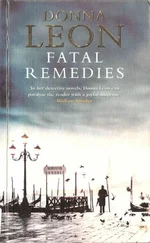“There is also the dispensation, which a pope can give for pretty much anything he chooses. So, as that American songwriter told us, ‘Anything goes.’
“Yes, my tone is an indication of how tired I am of my current research; not of the research itself, which is fascinating, but of what it makes me think and feel. So I welcome the chance to jump back in time and read about these long-dead people. You’ve sent me into the archives and created a curiosity that has put me in touch with colleagues I’ve not contacted for years. To my surprise, they seem as lit up by this subject as I am and have been raining down information upon me. Or perhaps we are all tired of our own research?
“One old classmate of mine, a man who is now teaching at the University of Constance, suggested I tell you to take a closer look at the Königsmarck Affair. He says he has seen a manuscript that claims your musician was involved in it. He said he would send further information if you want, although my guess is that he’ll send it to me, anyway, even if you don’t want it, since there doesn’t exist the scholar who doesn’t love gossip, even if it’s a couple hundred years old. I know of the affair only in the most superficial manner but would love to read what he says and will do so if it’s addressed to me. If it’s to you and he asks me to forward it, then I’ll do that and stay out of it. Ah, how proud Mamma would be to learn that the taboo about privacy she put into us with her milk is alive and well in Tübingen. From which city I send you my love, dear Cati, as well as my offer to continue to look into all of this for you. It keeps me from my own work, and I want that. For now. Love, Tina-Lina.”
Oh my, oh my, oh my, Caterina thought, it sounds as if Tina is coming to the end of the line. It had always puzzled her that it was Cristina who had been bitten by the Religion Bug, not Cinzia or Clara or Claudia, who had never studied anything and were not given to asking questions about the world they found themselves in. But all of them were lukewarm where religion was concerned. Cinzia and Clara had their kids baptized and confirmed, even went to church once in a while, and told the kids that God loved them and it was wrong to lie or hurt people. Cristina excepted, her sisters had little respect for priests, hated the Vatican as only Italians could hate it, and thought the Church should not be allowed to comment on politics.
“Stop it,” she told herself out loud and read the other emails. One was from a classmate from Liceo, saying he’d just learned she was back in town and would she like to go to dinner? “Not unless you bring your wife and kids, Renato,” she said and erased the mail.
The last was from Dottor Moretti, informing her that he had received phone calls from both cousins the day before, asking why she had not informed them of the progress of her researches. Nothing more.
She wrote back to him immediately, saying she was still reading through the documents in the first trunk and had not yet found anything worth reporting about the testamentary dispositions of Abbé Steffani. She thus found it necessary to expand the focus of her research—if he could be formal in his mail, then she could be, and would be, too—and would be obliged to consult other sources. She would, therefore, be absent from the office of the Foundation for the rest of the day while she pursued these researches.
“Take that, Dottor Moretti,” she said, as she punched at the “send” key, and off it went. Mention of the aria she had found could wait.
She flipped open her phone and saw that there was one message. She recognized the Romanian’s voice instantly, the easy Italian, the occasionally fumbled word. She saw that it had come in at three-thirty in the morning, making her grateful that she had turned it off before she’d gone to bed.
The Romanian, she was surprised—and then not, when she thought about what a brilliant teacher and researcher he was—had been offered the chairmanship of a department of musicology—he did not bother to say where—and was considering the offer, both depressed and inspired by her having had the courage to leave Manchester and abandon him to the “misery of boredom.” His voice trailed off and ended in the middle of a sentence. She closed the phone and placed it on the desk.
Caterina was suddenly overcome by an attack of conscience. The cousins were paying her to find something in these papers, and the least she could do was have a look through them to see if anything referred to this Königsmarck thing. She opened the storeroom and removed the thick packet she had been reading the day before. Back at the table, she untied the string, again pausing to marvel at its survival all these centuries, and started to read the top sheet. Realizing it was a letter she had read, she chastised herself for not having followed her usual scholarly routine by placing the already-read documents facedown on top of the pile before tying it closed.
Or had she? She tried to remember, but the events of the previous evening had wiped out any memory she had of her routine actions before leaving the office. Caterina was unsettled by this lapse of memory. She paged down until she found a document she had not read and started there. She speeded the process of reading by limiting herself to date, salutation, first two paragraphs, and signature. This way, she moved quickly through the remaining documents, finding nothing that appeared to be related to Steffani’s family, his feelings for them, or his possessions and will.
She closed the packet and took it back to the storeroom, set it upside down on the top of the taller trunk, and pulled out another packet, almost as thick as the other. Underneath there was nothing except the wooden bottom of the trunk.
She opened the next packet and left the strings on the table beside it. As quickly as she could, she went through the papers, touching them with the care that comes to anyone who has spent time reading documents that are hundreds of years old. She always held them at the center of the page on both sides and lifted them gently from the page below. At the first sign of resistance, she moved the sheet lightly on its axis. So far every page had quickly come free.
She looked through the first ten sheets before she accepted the fact that she was wasting time. The only way to guarantee that she understood everything was to read each document carefully from beginning to end.
That decided, she put the papers back in order, closed the packet, and took it back to the storeroom. The pile would have been too high had she put it on top of the others, so she slipped them all back inside the trunk, then closed and locked the metal doors.
She connected to the Internet, then put in Cristina’s address and wrote: “Dear Tina-Lina. Of course, it’s all right for you to read whatever goes between me and this man in Constance, and of course I’m curious about anything he has to tell me about Steffani. I’ve read a bit about it myself, and it seems that they—the two lovers—used lines from his operas in their letters. You believe in the Holy Ghost, so you should have no trouble in adding that to the list of things to believe. At any rate, dear one, I have so far seen no other mention that Abbé Steffani was involved in the matter in any other way, and it’s already risking exaggeration to consider this ‘involvement.’
“Listen to me, Tina-Lina. We all love you and respect you and will love you and respect you whatever you do or whomever you do it with. I’m back to doing research, so I’m reading between the lines of texts, and that includes yours. Stay well, know that you are loved, eat your spinach and say your prayers. Love, Cati.”
She clicked “send.”
She left the room, locked the door and pulled twice on the handle to be sure it was closed, did the same thing with the door at the bottom of the steps, then went down to Roseanna’s office, hoping that she would have heard all the noise of her industry and caution. But she had left.
Читать дальше












